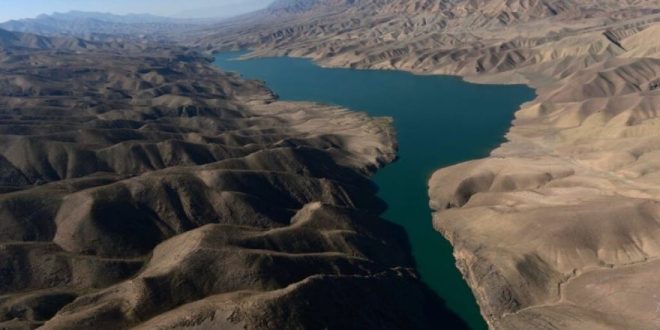AT News
KABUL – A mega plan by the Taliban to construct a hydroelectric dam on the Kunar River in eastern Afghanistan has sparked alarm in neighboring Pakistan. The proposed dam, lacking a bilateral water-sharing agreement between the two nations, has become a focal point of concern for Pakistani officials who view it as a potential threat to their country’s water supply.
Despite assertions by Afghan Taliban spokesman Matiullah Abid that the project’s survey and design are complete, the unilateral decision to proceed with the dam has been met with strong opposition from Pakistan. Jan Achakzai, the provincial information minister in Balochistan, warned of severe consequences, emphasizing the potential for escalating tensions and conflict between the two nations.
The Kunar River, stretching 480 kilometers from the Hindu Kush mountains in northeastern Afghanistan, plays a crucial role in providing fresh water to Pakistan. However, historical disputes over river usage and the absence of a formal water-sharing agreement have fueled concerns over the impact of the Taliban’s hydropower initiative.
While some experts argue that the relatively small size of the dam on the Kunar River may have minimal consequences for water flows into Pakistan, Pakistani officials contend that the project’s potential implications are being downplayed. The lack of technical expertise and financial resources on the part of the Taliban government to undertake such a project has also come under scrutiny.
The Taliban’s pursuit of ambitious infrastructure projects, including the hydroelectric dam, occurs against the backdrop of international non-recognition of their government. The extremist group’s strained relations with Pakistan, exacerbated by allegations of harboring the Tehrik-e Taliban Pakistan (TTP) militant group, add another layer of complexity to the situation.
In the past year, the Taliban’s controversial ban on women attending universities has drawn widespread condemnation. Afghan women, speaking to Radio Azadi, highlighted the toll of the ban on their education and aspirations. The Taliban’s rigid stance on female education, including restrictions on girls above the sixth grade attending school, has fueled international pressure for a policy reversal.
Despite mounting criticism, the Taliban appears reluctant to ease restrictions on female education, posing a significant obstacle to gaining international recognition and legitimacy. The ongoing tensions over the water project underscore the multifaceted challenges facing the Taliban government in its quest for regional stability and acceptance.
 Afghanistan Times
Afghanistan Times




